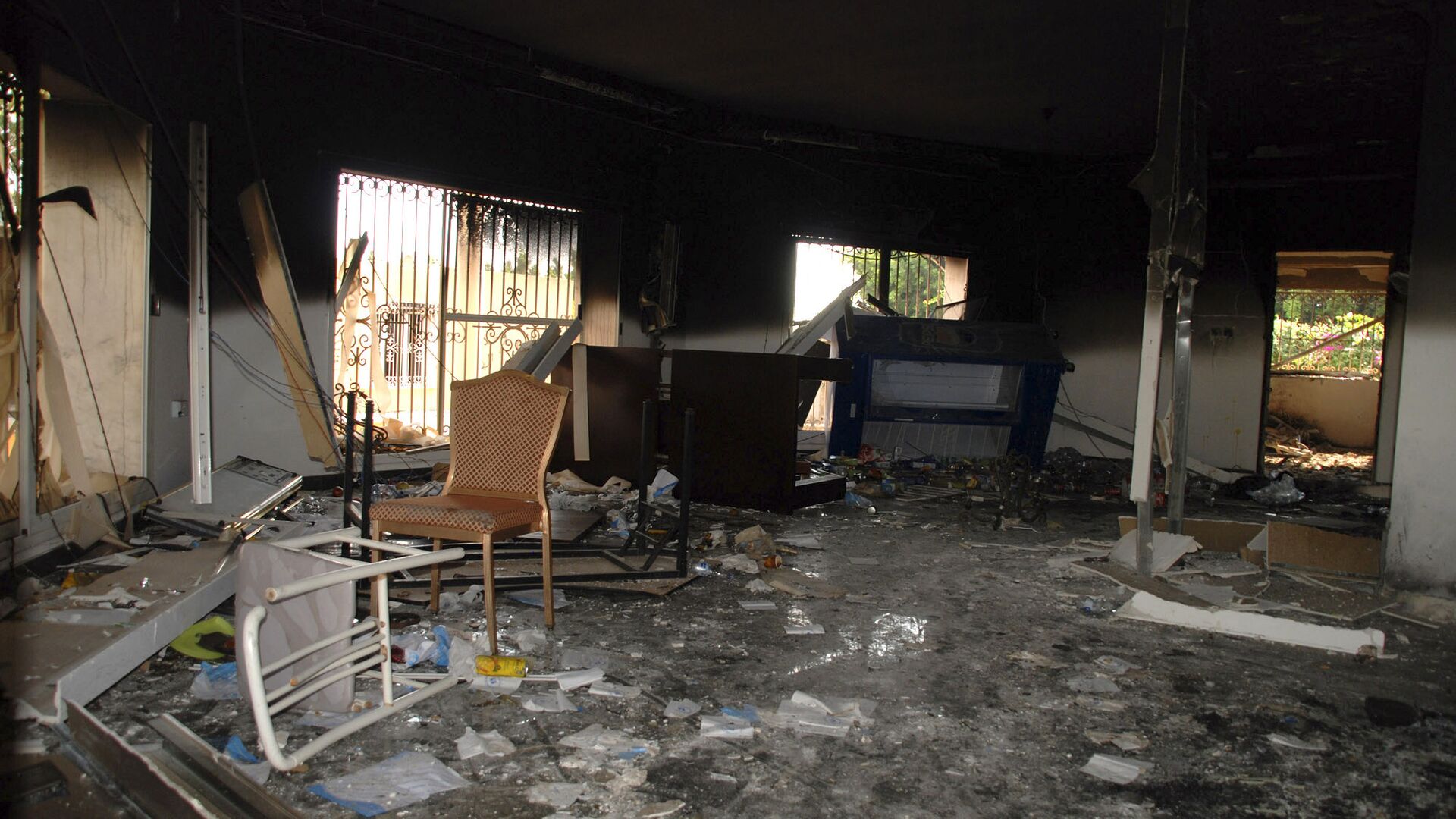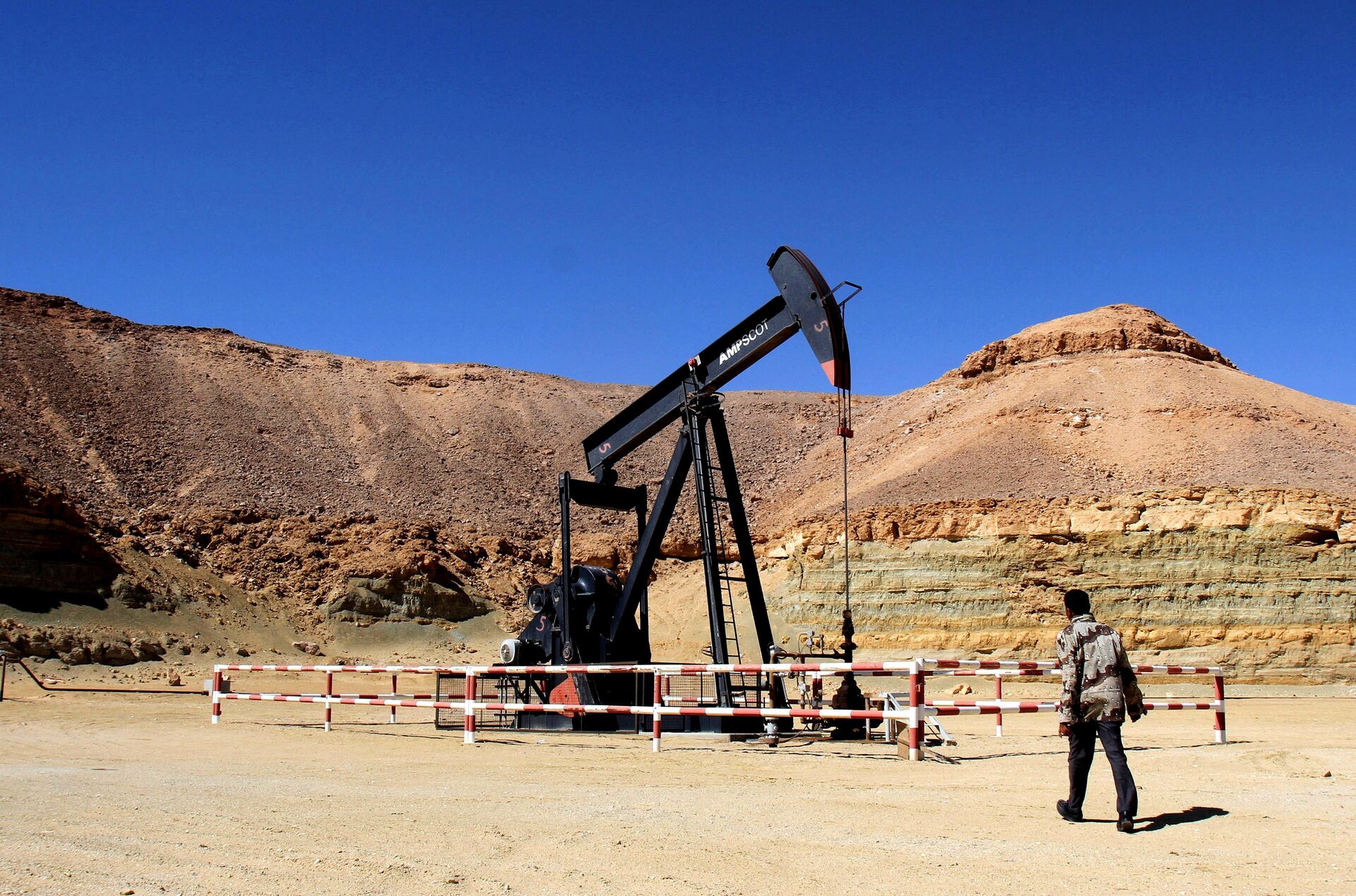A Decade After Benghazi Attack, US’ Chief Concern Remains Libyan Oil Taps, Not Ending Civil War
18:06 GMT 12.09.2022 (Updated: 11:04 GMT 24.11.2022)

© AP Photo / Ibrahim Alaguri, File
Subscribe
In addition to being the anniversary of the 2001 terrorist attacks in New York and Virginia by Al-Qaeda* and the 1973 military coup d’etat in Chile, September 11 also marks the day in 2012 that gunmen killed the US ambassador to Libya and three other Americans in Benghazi, amid that country’s civil war.
Sunday marked 10 years since roughly 20 gunmen stormed the diplomatic compound in the eastern city of Benghazi, burning down the villa with US Ambassador to Libya Chris Stevens and an employee, Sean Smith, inside, killing both of them, and later attacking a CIA facility in the city with mortars, killing two former US Navy Seals.
The intelligence and security failures that led to the attack’s success became a political scandal in the United States. However, the NATO intervention in the country 18 months prior, which resulted in the overthrow and execution of Pan-Africanist leader Muammar Gaddafi and plunged the country into civil war, has never received a similar level of scrutiny.
While the country has run through several different political formations of its factions, the basic division between a UN-backed official Government of National Accord (GNA) in Tripoli in the west, and a rebellious government in the eastern Cyrenaica region backed by parts of the military and several foreign powers in the east, has remained.
A decade after the Benghazi attack, Libya remains in chaos, but the American priority remains ensuring that Libya’s valuable oil reserves continue to be pumped and sold without interruption.
Crude Oil, Crude Politics
"The United States continues to support the vast majority of Libyans who expect elections and demand that the country’s oil wealth be managed responsibly," the US’ ambassador to Libya, Richard Norland said in a statement on June 29 during an overnight trip to Tripoli, the country’s nominal capital city. Since the 2012 attack, US envoys have been stationed outside the country in Tunis, Tunisia, and only rarely travel to Libya.
"While the ceasefire and dialogue have continued, it is alarming that some narrow interests are using the oil sector as a weapon or have unilaterally made decisions affecting the spending of Libya’s oil revenues," Norland added.

A Libyan security member walks by an oil drill on March 23, 2013 at the al-Ghani oil field, near the city of Waddan in the central Al-Jufrah province.
© AFP 2023 / Abdullah Doma
Officially, the state-owned Libyan National Oil Corporation (NOC) is the only entity that can sell Libyan oil abroad. However, since Libya has no effective state, the NOC is just another political entity in the civil war and has leaned heavily on foreign firms in recent years to help it increase production. These include Italy’s ENI, France’s Total and REPSOL, Norway’s Equinor, Germany’s Wintershall Aktiengesellschaft, and Austria’s OMV, as well as American companies like ConocoPhillips.
Nearly 85% of Libya’s “sweet crude” oil, which is low in sulfides and carbon dioxide, is sold in European markets. With the US and Western European boycotts on Russian energy exports driving up oil and gas costs, maximizing access to alternative sources has been seen as key to maintaining domestic order.
By July, Libya’s oil production had recovered to 1.2 million barrels per day, although militant groups in Tripoli, Sirte, and other cities have threatened those exports in an attempt to gain political leverage.
Sporadic fighting has continued in Libya, despite a relative lull in the civil war that began in 2021 as the two sides attempted to form a Government of National Unity (GNU) out of the Tripoli-based GNA and the Tobruk-based Libyan National Congress (LNC). Abdel Hamid Dbeibah was appointed prime minister as part of the process, but the LNC pulled its support for him later that year, accusing his government of corruption and illegal actions in its planning for the long-awaited presidential elections. The elections were postponed in December amid renewed fighting.
The rival of the GNU, the self-styled Interim Government, is based out of Bayda, about 100 miles east of Benghazi. The IG is led by the claimed prime minister, Fathi Bashagha, who was long affiliated with the GNA, but split from them earlier this year when Dbeibah refused to recognize his nomination as the new prime minister by the LNC.
Today, Bashagha enjoys the support of Marshal Khalifa Haftar, who commands the military forces loyal to the LNC, as well as many foreign powers, including other Arab states, who see Dbeibah as illegally continuing a term in office that should have ended in February 2022. Haftar, in turn, has enjoyed support from a number of foreign actors, including the United States, with then-US President Donald Trump praising Haftar's gains on the battlefield in 2019.
“The President recognized Field Marshal Haftar’s significant role in fighting terrorism and securing Libya’s oil resources, and the two discussed a shared vision for Libya’s transition to a stable, democratic political system," the White House said in a April 19, 2019, readout of a phone call between Trump and Haftar.

